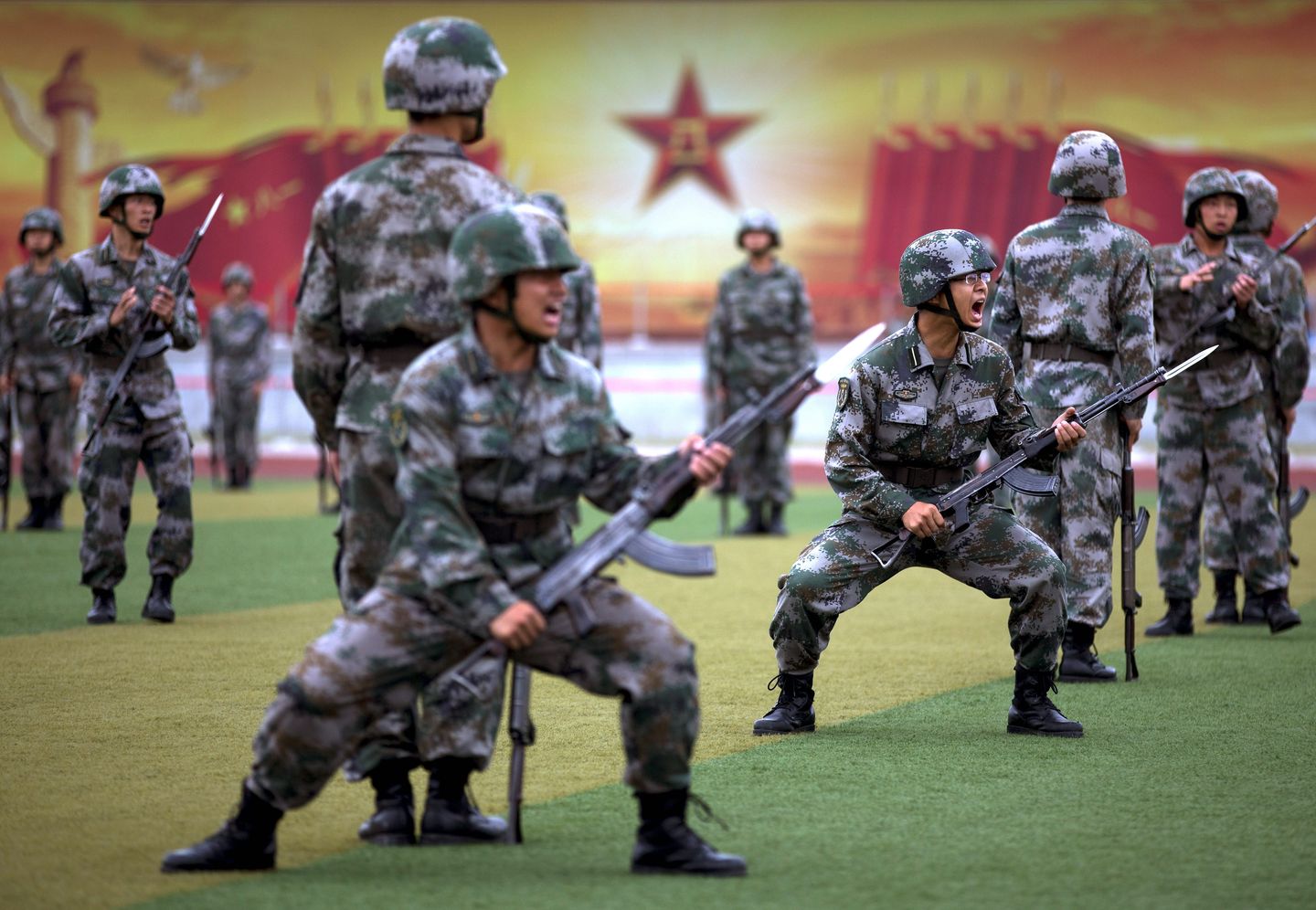

China’s military is blaming the United States for poor military-to-military relations after the U.S. and Chinese militaries held their first video conference last month.
Chinese People’s Liberation Army (PLA) Sr. Col. Wu Qian, who heads the Defense Ministry information office in Beijing, told reporters that the United States had provoked China and is blocking its development.
“As we all know, due to the constant U.S. provocations and containment against China, the China–U.S. military relationship is now facing manifold difficulties and challenges,” Col. Wu said at a late-September press conference, the English-language transcript was recently circulated by Chinese officials.
The comments came after Michael Chase, the new U.S. Deputy Assistant Defense Secretary for China, had held a video conference on Sept. 28 and 29 with PLA Maj. Gen. Huang Xueping, deputy director of the PLA international military cooperation office as part of U.S.-China defense policy coordination talks.
The harsh comments by Col. Wu blaming the United States contrasted with a rosy assessment of U.S.-China military ties that the Pentagon presented on the Chase-Huang video conference.
“The meeting is an important component of the Biden-Harris Administration’s ongoing effort to responsibly manage the competition between the U.S. and the PRC by maintaining open lines of communication with the PRC,” said Pentagon spokesman Lt. Col. Martin Meiners.
Col. Meiners said Mr. Chase and Gen. Huang “held a frank, in-depth, and open discussion on a range of issues affecting the U.S.-PRC defense relationship.”
“Both sides reaffirmed consensus to keep communication channels open,” he said. “The U.S. side also made clear our commitment to uphold shared principles with our allies and partners in the Indo-Pacific region.”
Col. Wu, meanwhile, claimed that while U.S.-China military-to-military ties are important, China will only develop bilateral military ties “on the premise that China‘s sovereignty, dignity and core interests are not to be violated.”
The PLA welcomes communication and cooperation and is willing to “face up to differences and oppose coercion,” he said.
“Whereas, the U..S side has serious problems with the cognition of China, itself and the world today, which is the root cause of the current difficult situation in the relations between the two countries and two militaries,” Col. Wu said.
He also said the PLA wants the United States to “correct its mistakes” and “join hands with China” in seeking closer military ties.
Tensions between the two militaries have increased in recent months over China’s military encroachment in the South China Sea, where Beijing has reclaimed some 3,200 acres of disputed islands and placed missiles on some of them.
The Chinese military opposes stepped cooperation with Taiwan including more than $10 billion in a recent offer of defensive arms.
China’s also has complained about increased U.S. Navy freedom of navigation operations in the South China Sea involving warship passage throughout the waterway that China has claimed is 90 percent its maritime territory.
China also has been conducting aggressive aerial incursions into Taiwan’s air defense zone, including the recent flights of more than 150 warplanes, including H-6 bombers, near the island.
The China rebuke of the Biden administration’s efforts to restart military exchanges comes against the backdrop of the controversy over Gen. Mark Milley, chairman of the Joint Chiefs of Staff, holding talks with a Chinese general last fall and informing him the U.S. military would alert China prior to any attack.
Gen. Milley has defended the calls that were not coordinated with the White House or State Department, saying he is “specifically directed to communicate with the Chinese by Department of Defense Guidance, Policy Dialogue System.”
“These military to military communications at the highest levels are critical to the security of the United States in order to deconflict military actions, manage crisis, and prevent war between great powers armed with nuclear weapons,” he told the Senate Armed Services Committee Sept. 28.
U.S.-China military-to-military exchanges have been controversial since they began in 1979.
Congress in 2000 restricted military engagement with China to prevent the PLA from gaining warfighting skills and know-how from the exchanges.
During the Trump administration, military exchanges continued but were restricted as part of policies designed to pressure China and the PLA halting aggressive military activities and coercive operations.
